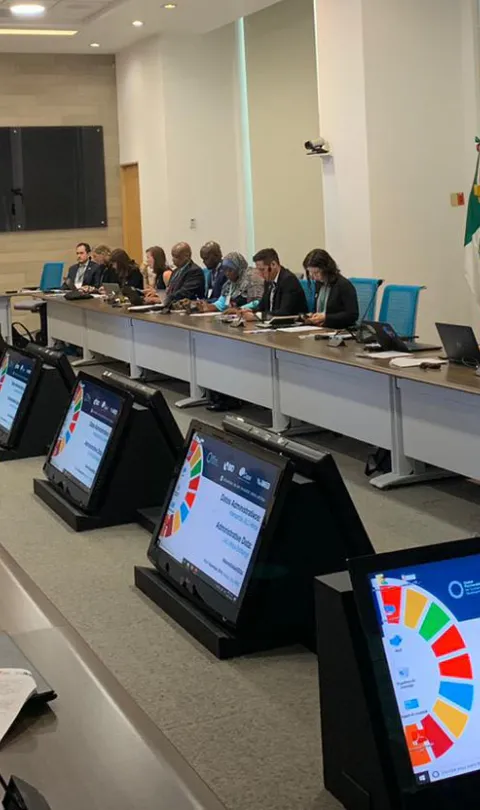11 governments from Latin America, the Caribbean, and Africa gathered in Mexico City today to share insights on how administrative data - routine data collected by governments and service providers - can be better leveraged to improve lives.
This cross-regional collaborative peer exchange is organized by the Global Partnership for Sustainable Development Data, Cepei, and the Inter-American Development Bank, and hosted by Mexico’s Instituto Nacional de Estadística y Geografía/National Institute of Statistics and Geography (INEGI).
The peer exchange on administrative data featured: Belize, Colombia, Costa Rica, Ecuador, Ghana, Kenya, Mexico, Paraguay, Senegal, Sierra Leone, and Tanzania. The 11 governments are working with sector experts, NGOs and UN agencies to develop more efficient mechanisms to capture, manage, analyze, and share data that underpins vital public services, using different tools and technologies.
Global discourse on data innovation has tended to overemphasize new technologies such as drones and artificial intelligence, but there is a growing awareness by governments that they already collect troves of information that could be used more creatively.
“When we register the birth of a child, complete a customs form, use medical services or file our taxes, we are generating administrative information,” says Jenna Slotin, Senior Policy Director of the Global Partnership for Sustainable Development Data. “Buried in these bureaucratic records is a tremendous opportunity to extract timely insights that improve citizens' education, health, and life chances.”
Administrative data can also be more cost effective and sustainable because it is part of an existing and recurrent business process rather than stand-alone data collection exercises, which often cost millions of dollars. Almost all governments need to improve their understanding of people in their countries and their needs. The average birth registration globally is just 73 percent, and less than half (46 percent) of all children under five in Sub-Saharan Africa have had their births registered. This is a tragedy for those who go unregistered and whose needs go unmet as a result.
Enrique De Alba Guerra, Vice President of the Governing Board of Mexico’s National Institute of Statistics and Geography believes getting administrative data right would be critical: “We cannot plan what we cannot measure, and without a precise and up-to-date population count, governments will not have at their disposal the necessary information and tools for decision-making. These routine, ordinary data can bring about extraordinary results if they are applied to achieving the Sustainable Development Goals.”



